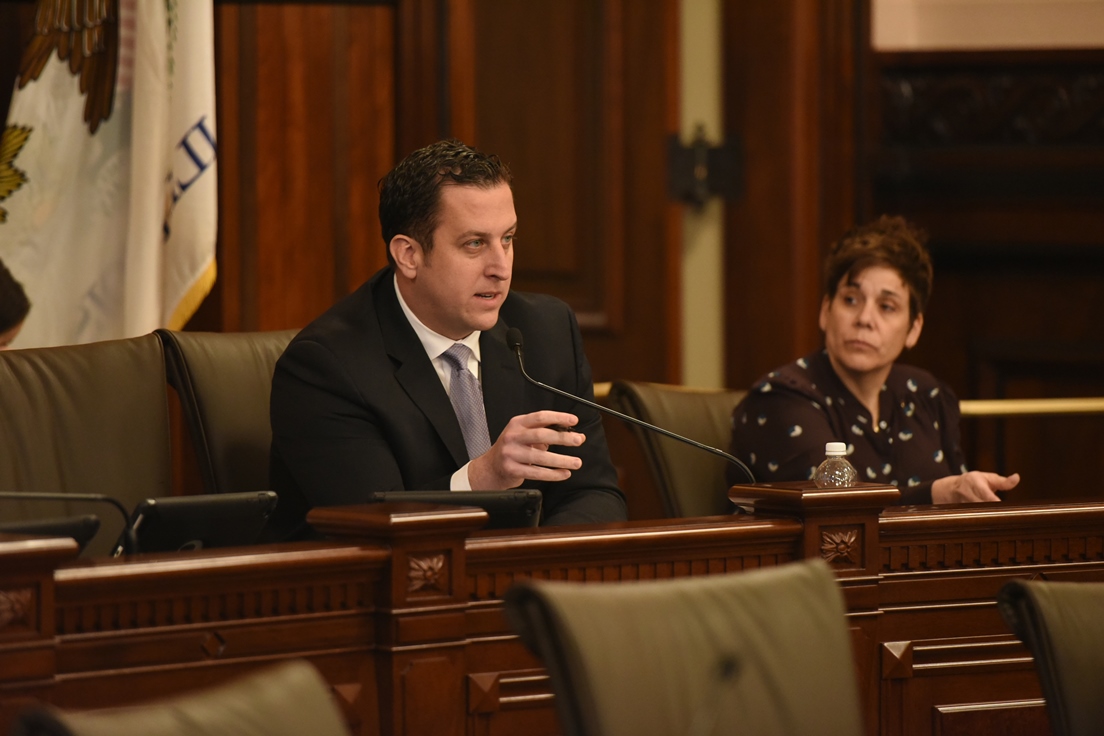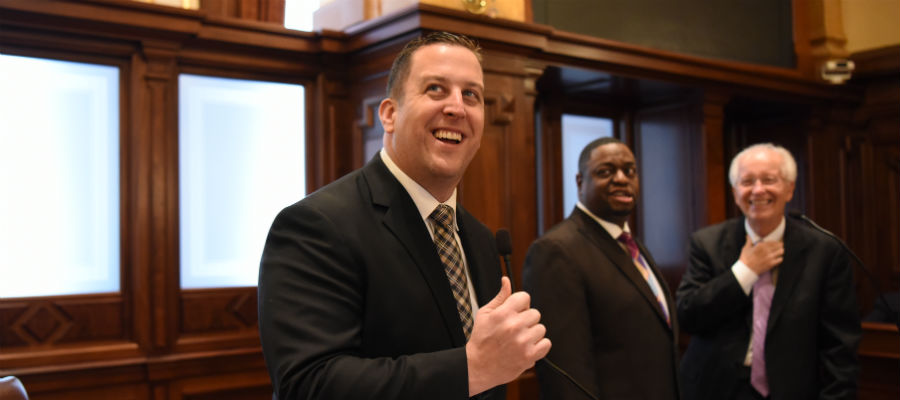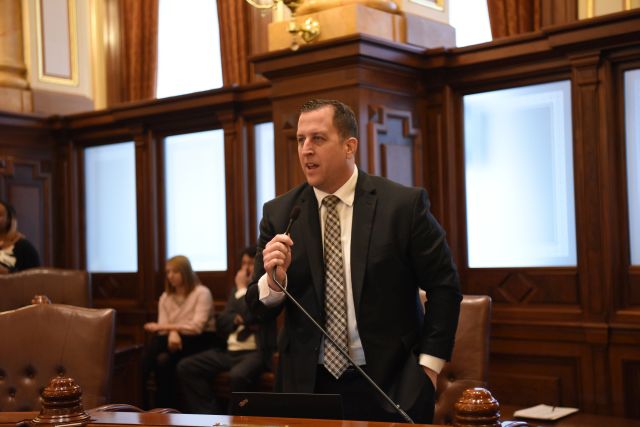- Details
- Category: Press Releases

SPRINGFIELD – A package of legislation that would address Illinois’ teacher shortage crisis passed the Senate Wednesday night.
State Senator Michael E. Hastings is a sponsor of the initiative.
“It’s no secret that we have a crisis on our hands,” Hastings (D-Tinley Park) said. “At the present moment there simply are not enough students entering the teaching profession in Illinois upon graduating college.”
Senate Bill 1952 contains the following provisions:
• It reinstates the 6 percent cap for teacher salary increases to be covered by the state. Last year, lawmakers lowered the cap to 3 percent.
• It removes the requirement that teachers must pass a basic skills test to be licensed.
• It permits K-12 student teachers and early childhood student teachers to be paid.
• It creates a refund program for teachers in underfunded, hard-to-staff school districts to recoup the cost of the teacher performance assessment.
• It allows early childhood student teachers to be paid and receive credit.
“The need for a comprehensive package that will address our current predicament has been evident for some time,” Hastings said. “I’m pleased that we in the General Assembly are taking proactive steps to ensure we are able to compete for the top talent in the teaching profession.”
This legislation moves to the House for consideration.
- Details
- Category: Press Releases

SPRINGFIELD – Legislation to raise the minimum wage for teachers to $40,000 per year passed the Senate today.
State Senator Michael E. Hastings is a chief co-sponsor of this initiative.
“In the State of Illinois the minimum wage for teachers who have their bachelor’s degree is currently $10,000 per year. This places an unnecessary burden on those who have chosen to dedicate themselves to our kids,” Hastings (D-Tinley Park) said. “Making sure teachers in Illinois earn a living wage is simply the right thing to do.”
Under Senate Bill 10, the state would update the minimum mandated salary for teachers annually over four years, beginning with the 2020-2021 school year. The wage would be raised incrementally to:
• $32,076 for the 2020-2021 school year;
• $34,576 for the 2021-2022 school year;
• $37,076 for the 2022-2023 school year; and
• $40,000 for the 2023-2024 school year;
“If we can offer a competitive salary for teachers we stand a much better chance of retaining some of the top talent in our state,” Hastings said. “If we are truly placing education at the forefront of our priority list we must take care of our teachers. Our students only stand to benefit from this.”
- Details
- Category: Press Releases

SPRINGFIELD – Legislation that would expand the Law Enforcement Officer Intern Program passed the Illinois Senate today.
State Senator Michael E. Hastings is the chief sponsor of this initiative.
“Our current Law Enforcement Officer Intern Program is one of the finest programs the state of Illinois offers to those seeking a career in law enforcement,” Hastings (D-Tinley Park) said. “However, I felt that we could make a few improvements to the program that would allow for a more expansive training program.”
Senate Bill 2148 would expand the current Law Enforcement Officer Intern Program to also include a Corrections Officer Intern Program and would also add veterans' preferences in the application process for both programs.
“There is no group of people that could be better prepared for this program than our veterans,” Hastings said. “By adding veterans’ preference to this program we would provide our veterans more job opportunities while simultaneously ensuring our law enforcement officers come from an intensely qualified background.”
This legislation now goes to the House for consideration.
- Details
- Category: Press Releases

SPRINGFIELD – Pharmacists would be able to administer long-term mental health treatment to patients thanks to legislation introduced by State Senator Michael E. Hastings.
“At this time, only physicians are legally allowed to treat their patients using the injection method,” Hastings (D-Tinley Park) said. “However, because there are sometimes cases that happen to be a bit more urgent, this legislation would allow pharmacists to administer the treatment rather than the patient waiting around for an appointment with a physician.”
Senate Bill 1715 ensures that pharmacists, in addition to physicians, would be able to administer long-term mental health treatments via injection efficiently and safely, as long as a prescription from a physician is present.
“It’s no secret that we have a societal problem on our hands with the accessibility of mental health treatment,” Hastings said. “We must make sure those who need help are able to receive it as quickly and safely as possible. This is a necessary step as we in the Illinois Senate look to make mental health treatments more accessible to those in need.”
This legislation now goes to the House for consideration.
More Articles …
Page 44 of 87


